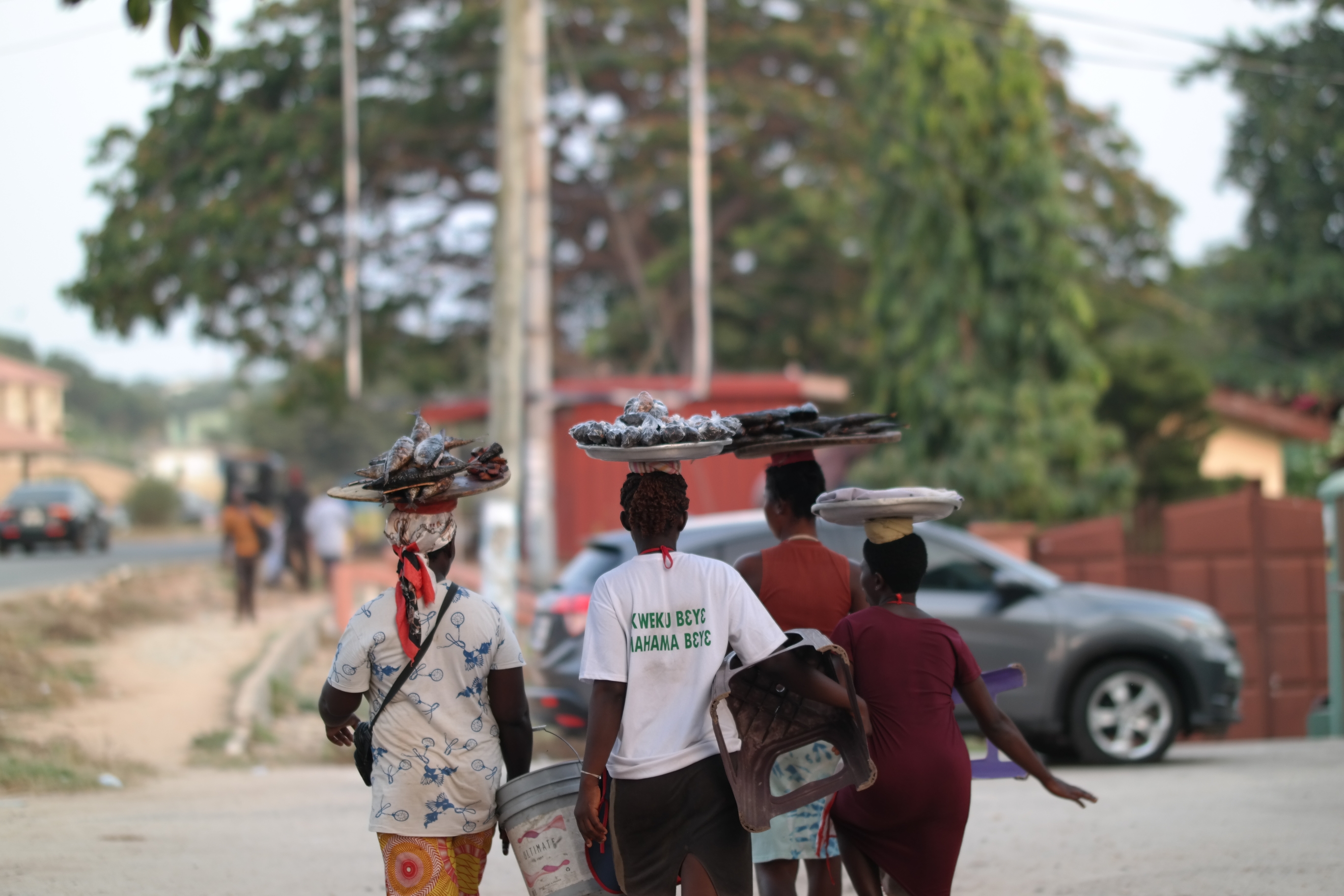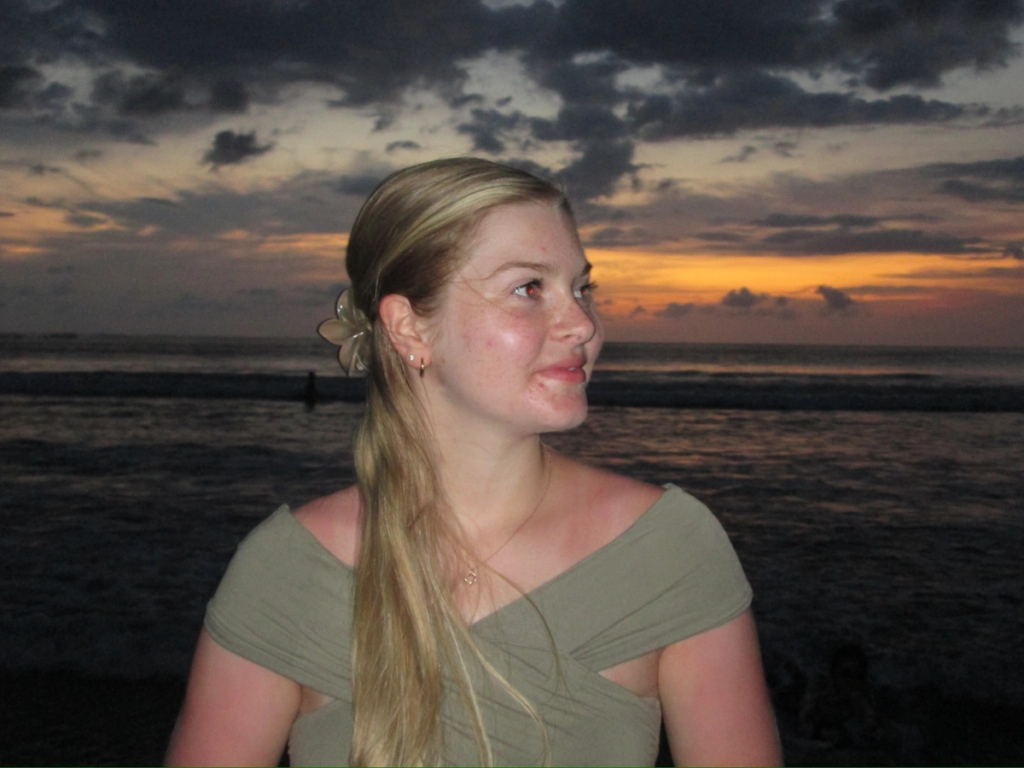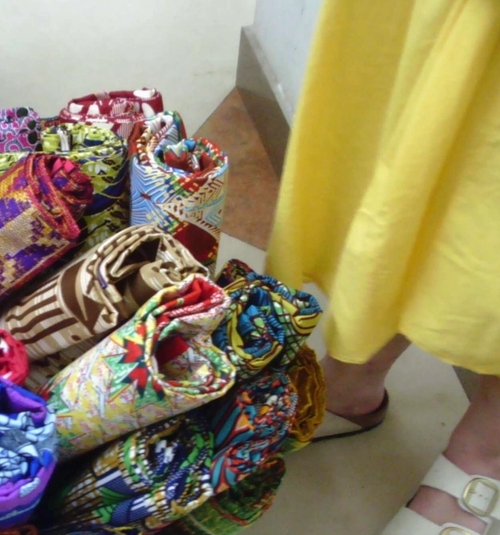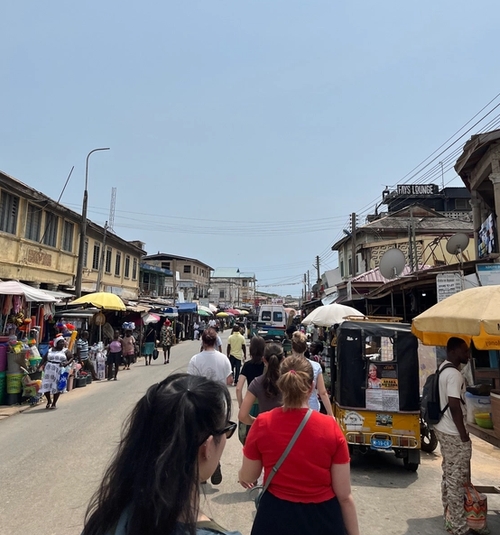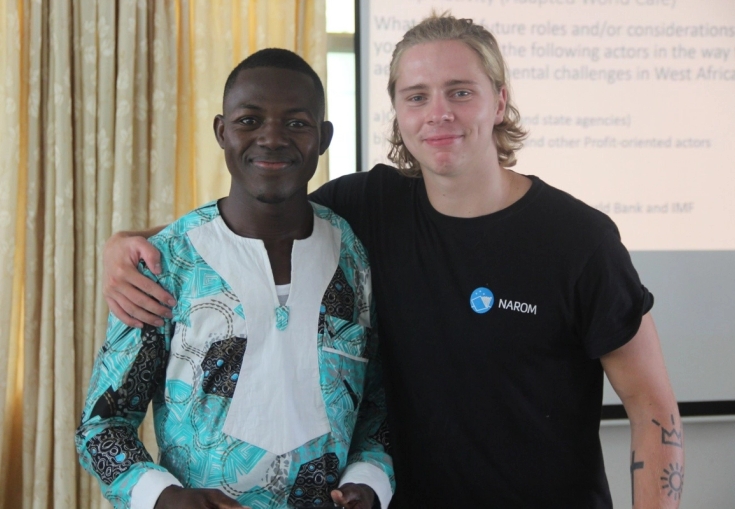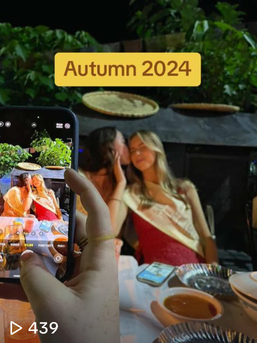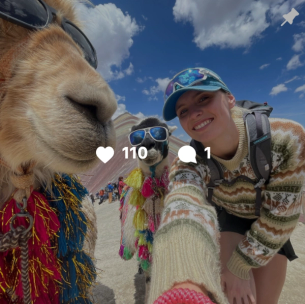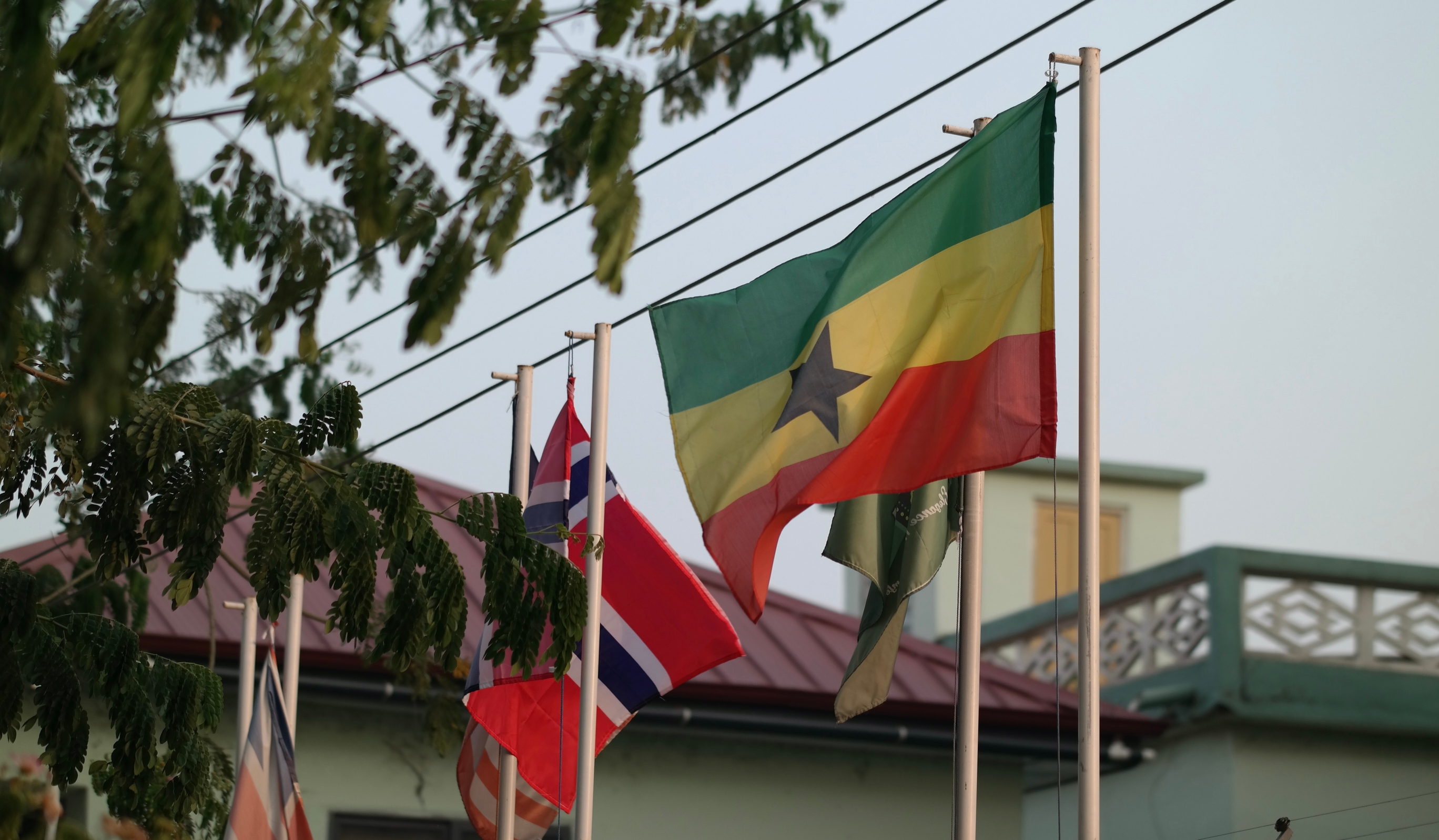
Cultural differences: Norway and Ghana
After spending two weeks in Cape Coast, we have noticed some cultural differences between Norway and Ghana. Many aspects of the culture are a bit difficult for us to understand, but we have become more and more accustomed to them as we try to adapt.

This text is translated using AI.
View the original article here.Queue culture
One of the first things we noticed when we landed at the airport in Accra was that the queue culture here is not the same as back home.
I would argue that we in the Nordic countries are very concerned with order and justice, for example when we queue. Most people know that you do not cut in line, and if you do, you often receive some nasty looks or comments.
In Ghana, on the other hand, people take every opportunity they see to cut in line or push ahead in the queue without regard for those who have been waiting longer than themselves.
I experienced this as well the last time I was in Africa, and I learned then that one must keep close to the person in front, and not give anyone else the chance to cut in front of you. Because if they get the chance, yes – they will take it.
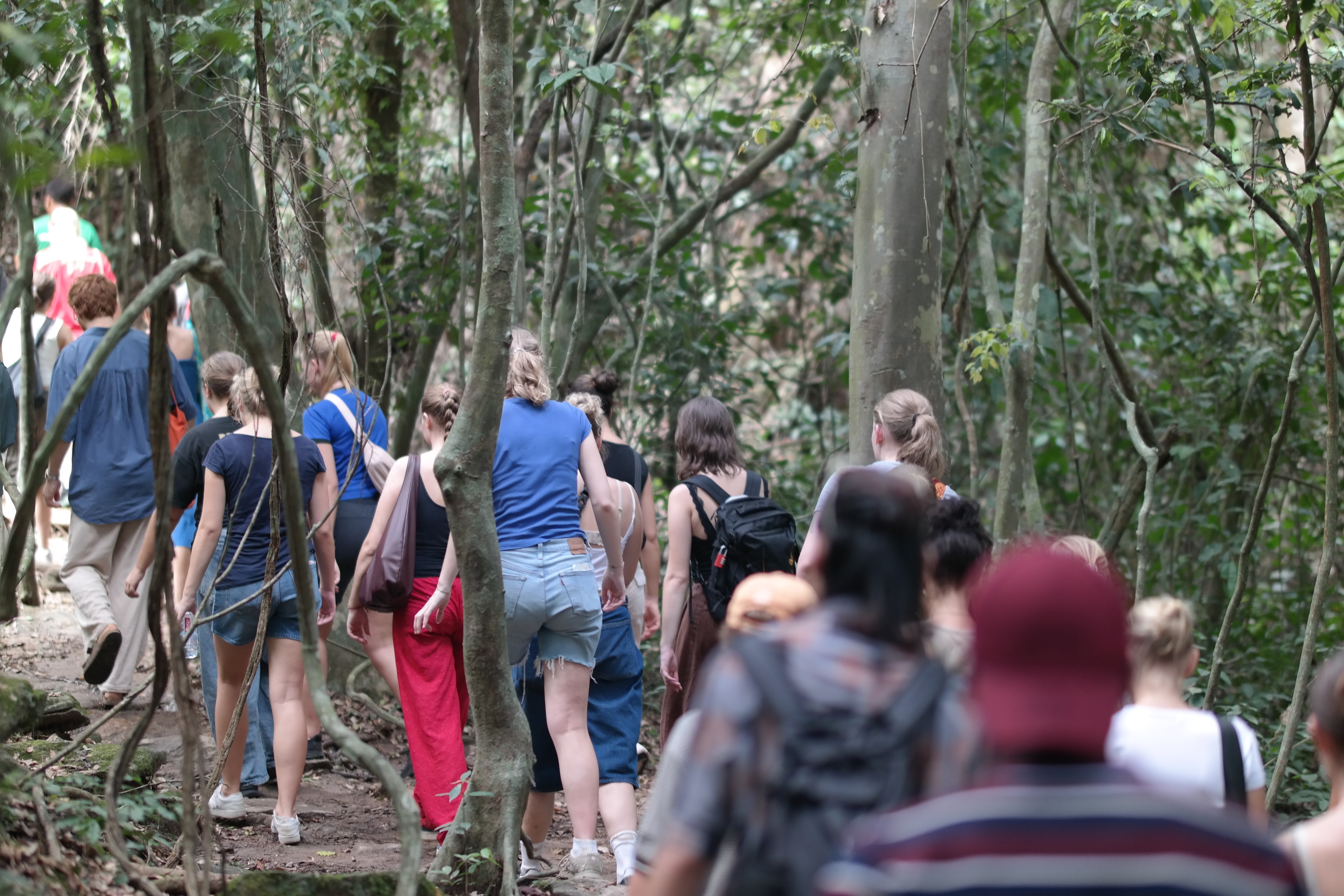
Traffic safety
The second thing we noticed after arriving in Ghana was that both road safety and traffic in general are quite different from what we are used to.
When we were driving from Accra to Cape Coast, not all the seats had seatbelts and the suitcases were stacked on top of each other in the back seat without being secured in any way.
The roads we drove on were also very bumpy at times, so those sitting in the back had to turn around and hold onto their suitcases on several occasions to prevent them from sliding forward and hitting us in the head.
When the driver went over an extra large bump, and the suitcases once again nearly fell forward in the car, the driver fortunately realized that he should perhaps drive a bit more carefully than he had done until then!
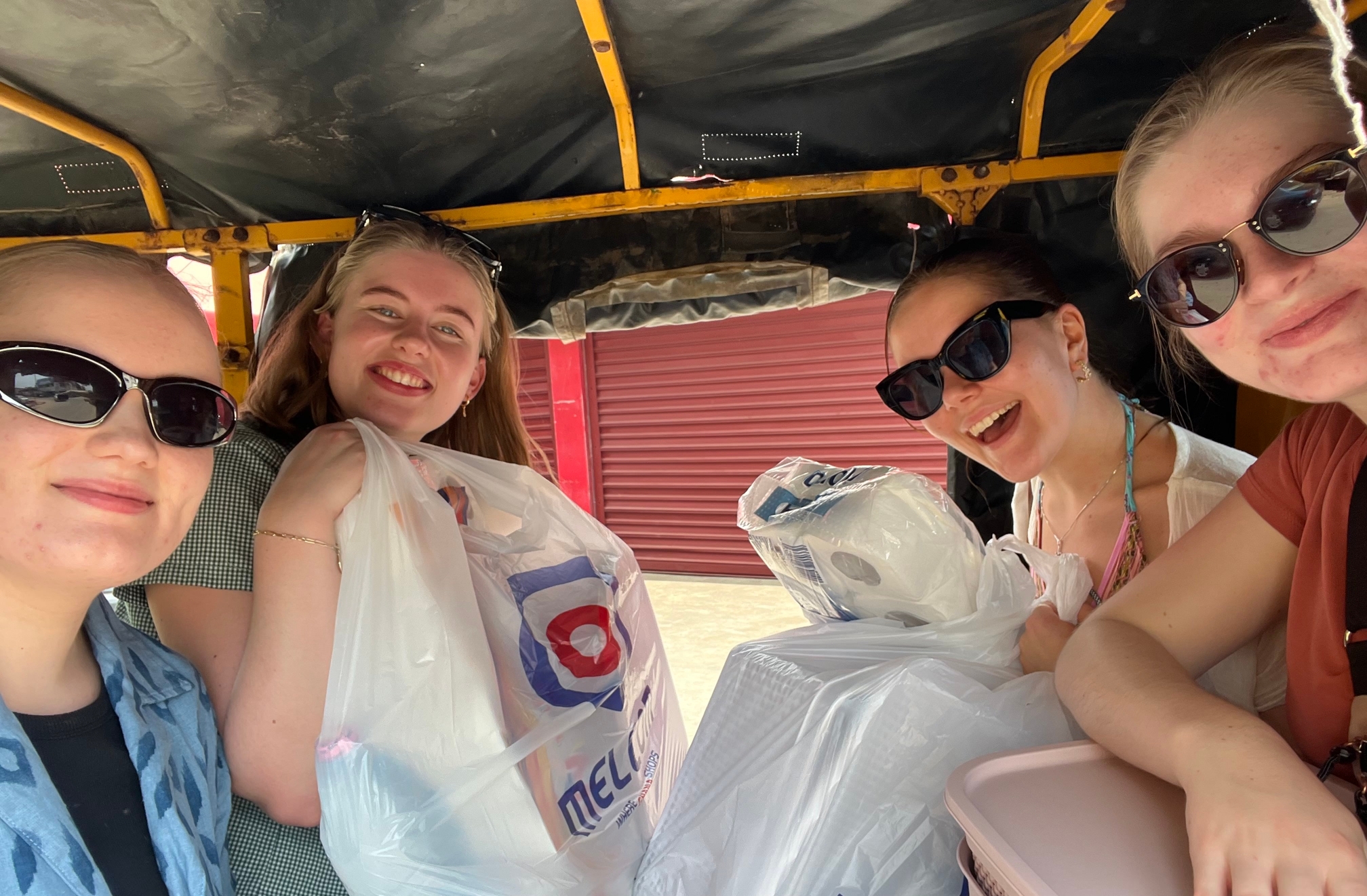
In Cape Coast, there are also many tuk-tuks, which serve as a slightly cheaper means of transportation. However, even though it's tempting to take these, there is a much higher risk of accidents in them compared to regular taxis.
Often, the drivers do not even have a driver's license. Therefore, Kulturstudier strongly advises against using these.
Above you see a picture of me and some fellow students riding a tuk-tuk, but this was done before we knew how dangerous these can be and were informed that they are not recommended for use.
Water and electricity
In Ghana, both water and electricity are expensive. Now it's also the dry season, which means that the water we use has to be purchased, since there isn't enough rainwater collected. Therefore, the water isn't turned on throughout the entire day at the hotel we're staying at, and when it is on, we have to use as little as possible.
In other words, showers will be brief, and one can't always wash hands with soap and water after using the toilet. Initially, it felt strange and a bit frustrating, but now we have managed to adapt better and, for instance, clean our hands with wet wipes and Antibac if we don't have water available.
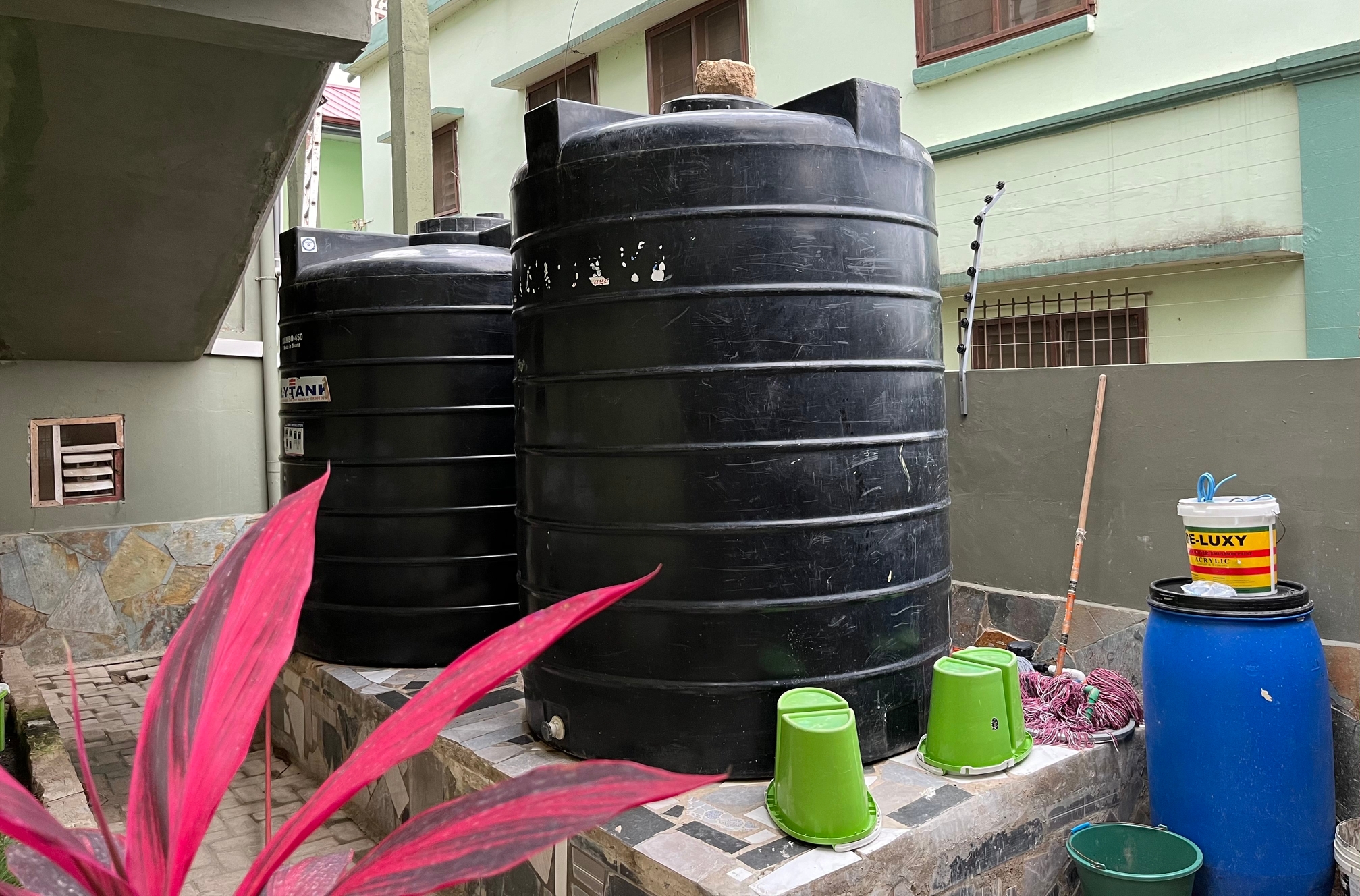
The power at the hotel we're staying at is relatively stable, but there are times when it goes out. One of the first nights, the power went out in the evening and didn't come back until early the next morning.
Fortunately, some of the rooms still had lights, but the air conditioning and the power in the outlets were not working. So power outages are something one must expect to happen! Therefore, it might be wise to always have a fully charged power bank available.
"African time"
African time is a well-known phenomenon that you will become very familiar with if you travel to Africa! Even the simplest things can indeed take a long time.
When you come from a society as 'efficient' as ours, it's a stark contrast to arrive at a place where everyone is completely relaxed and not in a hurry to get things done.
If you go to a restaurant or café to eat, it can quickly take one to two hours to get your food after you've ordered, and if you have an appointment with a Ghanaian to meet at a certain time, you can almost bet that the person will not arrive on time.
The other day we were supposed to get a receipt, and waited 10-15 minutes for what would have taken at most 2 minutes in Norway. It can be very frustrating that everything takes so long when you're used to something completely different – but unfortunately, things don't go any faster by getting annoyed about it.
On the other hand, one can find some solutions that prevent having to wait so long for certain things. For example, we rarely go out to eat on weekdays, but we order dinner at the hotel for a specific time many hours in advance. This way, the restaurant can take as long as they want to prepare the food, and we get it approximately on time. Win-win!
